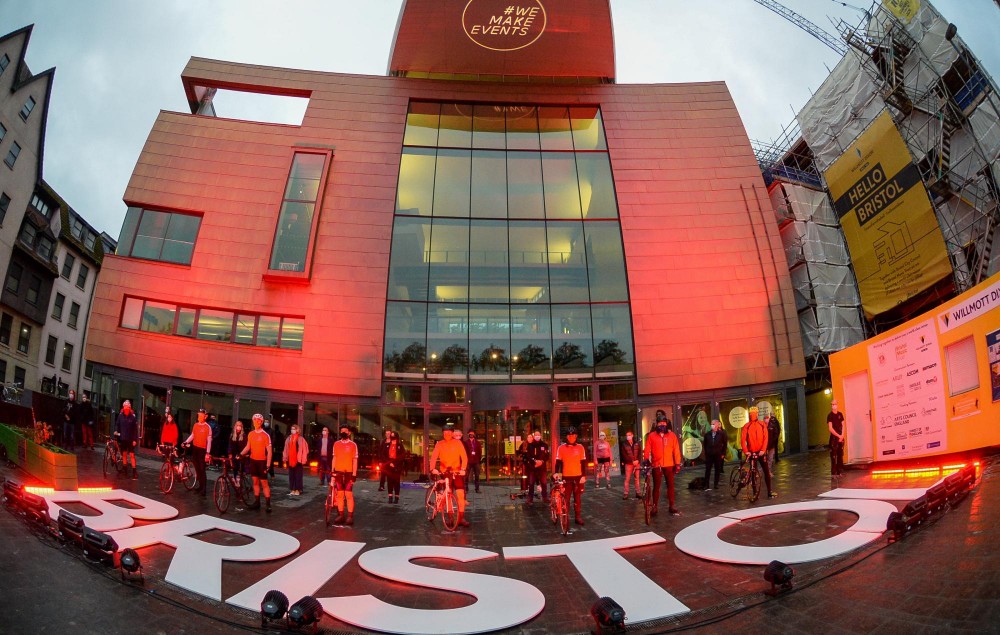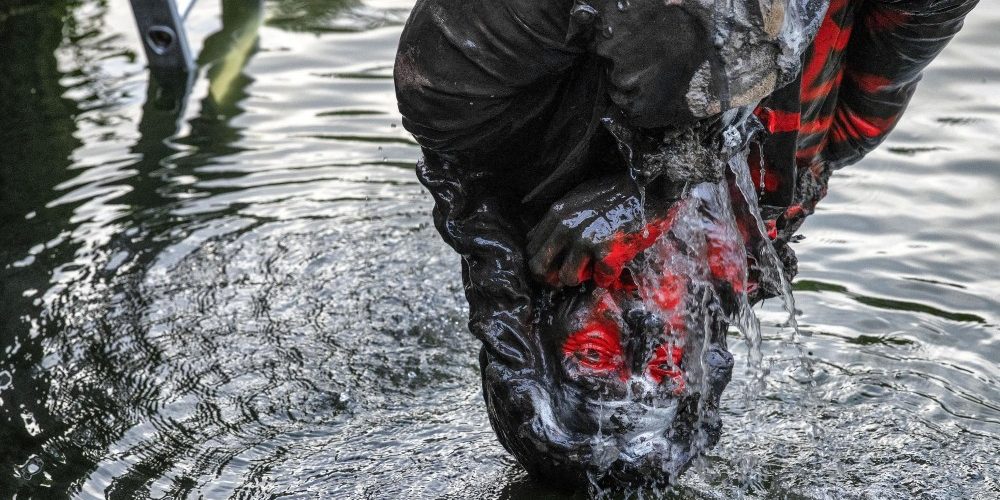Bristol Beacon venue shares update as toppled Edward Colston statue readies for museum display
Bristol Beacon, formerly Colston Hall, has shared an update on its music and social programmes months after changing its name in the wake of Black Lives Matter protests.
Phil Castang, Director of Creative Learning and Engagement at Bristol’s biggest music venue, has written an article outlining new initiatives that will support “under-represented” emerging creatives in the music industry.
The news comes as plans were unveiled today (June 4) to put the statue of 17th Century slaver Edward Colston on display at the city’s M Shed museum. As BBC News reports, the toppled statue will have placards from last summer’s protests placed around it.
Local residents have also been invited to take part in a survey to decide what should happen to it after the exhibit, which is being led by the We Are Bristol History Commission.
#BlackLivesMatterBristol yesterday speaking my peace. So much more to say, but for now I’ll leave this here. ✊?
KEEP SPEAKING PEOPLE #BlackLivesMatterUK #BlackVoicesMatter #EdwardColston #Down#BlackVoicesUp pic.twitter.com/NYYuJz3V4Z
— Solomon O.B (@SolomonConcepts) June 8, 2020
On June 7, 2020, Bristol’s controversial tribute to the slave merchant was pulled off its plinth by Black Lives Matter protesters and dumped in the city’s harbour.
Now, Castang has written in Arts Professional that the Bristol Music Trust, which is associated with the Bristol Beacon, has been developing a new ‘Inclusive Excellence’ creative programme for the venue that used to bear Colston’s name.
“Inclusive Excellence is rooted in the belief that you can’t have excellence without inclusion and that the very success of a modern, thriving venue depends upon the quality of the relationship with local communities,” wrote Castang. “At the heart of this relationship is trust. There comes a point when promises must be delivered and words must become actions. Change must be tangible.
“On the announcement of our new name, we launched ‘Our Transformation Promise’. This commits Bristol Beacon to a major programme of organisational culture change, and it is on these promises that we will be judged.
He added: “It’s been a year since the statue’s toppling and eight months since we announced our new name as Bristol Beacon. The social media nastiness has faded and there is a renewed sense of vision and purpose that comes with starting afresh. It feels a like a weight has been lifted.
“Consultation has been critical throughout our journey to becoming Bristol Beacon. Engaging widely has helped shape a vision for the kind of organisation we want to become, and the city needs us to be. Profound conversations with communities, funders, partners and staff have diversified our outlook and brought a plurality of voices that we don’t yet have inside the organisation.

Castang continued, announcing promises to improve the organisation’s workforce representation: “We are working with several organisations including ‘Representation Matters’, to ensure our recruitment practices are delivering the pace of change we need to see.”
Additionally, Castang detailed the venue’s aims for the next five years, with it launching “several new strands of work that aim to improve lives and health outcomes of communities across the city”.
“This means a new programme of participatory arts activities for those experiencing social isolation, commissions that connect and build trust with communities that have felt historically detached from our venue, and we have a new role as part of ‘Thriving Communities’, supporting music on prescription.”
Read more about Bristol Beacon’s new initiatives here.
